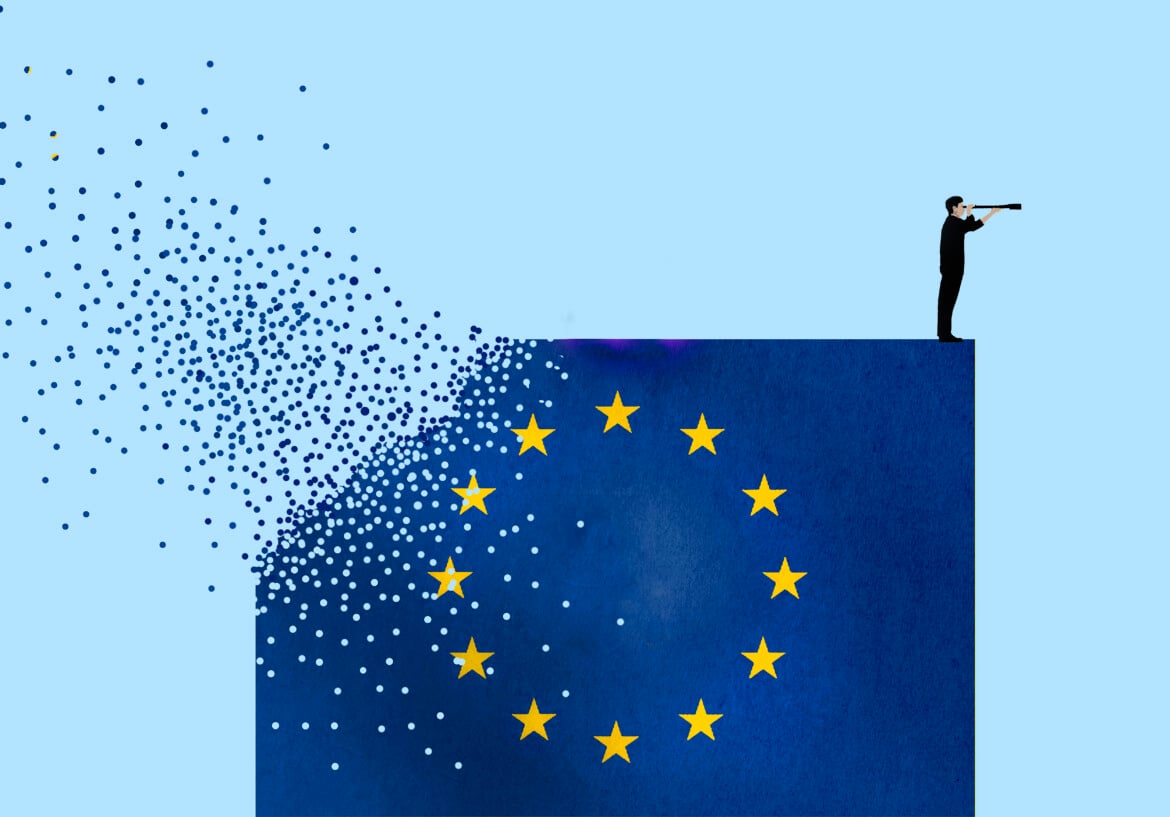Commentary
The urgency of a Europe for peace
What we have before us is a Europe that, in three years of war on its own doorstep, has been unable to articulate the slightest discourse for peace. Not one diplomatic initiative; not one attempt to identify a nonviolent way out.

For what Europe are we being called to take to the streets? The question may seem pedantic, given the brutality of the times we are living in – which is, moreover, rapidly worsening. However, if we want to avoid engaging in a merely self-soothing initiative – as Andea Fabozzi pointed out on March 4 – one cannot help but ask what is the Europe that we imagine should offer itself as an alternative to the United States of Trump, Vance and Musk.
It is not necessary to go back all the way to the Ventotene Manifesto to get a sense of deep unease when looking at contemporary Europe. What we have before us is a Europe that, in three years of war on its own doorstep, has been unable to articulate the slightest discourse for peace. Not one diplomatic initiative; not one attempt to identify a nonviolent way out. Autocrats like Erdogan and bin Salman have hosted negotiations. Europe did not. Europe set as its goal the military defeat of Russia, the collapse of its economy, and the political and personal demise of Putin. And, now, with the war heading to a loss, it doesn’t know how to react otherwise than by planning to arm itself to the teeth, derogating for military expenses alone from those very rules it has always claimed were unbreakable when spending for schools and hospitals. With the aggravating circumstance that a rearmament wouldn’t even yield real strategic autonomy, not even in a long-term perspective, since it would be carried out under conditions of complete technological subservience to the United States.
Some will say that at the very least, Europe has not succumbed on the level of values. It has chosen without hesitation to support the aggressed and not the aggressor, demonstrating that it knows how to pick the side of justice. But it’s all too easy to retort that in the Middle East, Europe has made the opposite choice: on the side of the perpetrator, against the victim, all the way up to the threshold of plausible genocide. “From the river to the sea” is now a de facto reality: the reality being imposed by Israel. What the Palestinians aren’t even allowed to say, the Israelis are allowed to do. Is this Europe’s brand of justice? Upholding values when it suits it, ignoring them when it doesn't? Values either apply or they don't. And if they don't apply to some, they don't apply to anyone: they become the veil of hypocrisy that conceals one’s self-interest.
Furthermore, the European states that stand as defenders of the attacked Ukraine have had no qualms about becoming aggressors themselves in very recent years: in Iraq, Afghanistan, Syria, Libya. And when, after razing those countries to the ground, large swaths of their populations moved in search of a decent life, Europe reacted by putting up walls and entrusting its “external security” to blatant slavers and torturers.
Now Europe is looking at the denial of a central human right in the post-World War II international order: the right to asylum, which the European Commission is asking the Court of Justice to deny without having to bother changing the relevant legislation. A “safe country” will be whatever European governments proclaim as such; and, while waiting to be returned to such countries, human beings fleeing persecution will be detained in camps located outside Europe's borders, where even the right to defense cannot be fully exercised.
As for domestic policies aimed at European citizens, one cannot even think about deviating from the dogma of the market society. The state must be reduced to a minimum, because the only acceptable principle of social order is that of economic competition: be it between people, companies or territories. Citizens are reduced to consumers; and if there is to be any fight against discrimination at all, it is always for the same reason: to avoid any distortion to the golden rule of absolute freedom of productive factors (goods, services, capital, people). Money remains at the heart of the system – with the correlated removal of its governance from politics, and thus from democratic control. Let the costs be what they may. Even if they include the social devastation of an entire country, as the tragedy inflicted on Greece should remind us.
Is it for this Europe, the Europe of arms, international injustice, walls and money, that we should take to the streets? For the one which, by promoting inequality and fueling violence in international relations, is building a present, and a future, of electoral triumphs for the neo-fascist far right?
The urgent matter is peace. As Norberto Bobbio taught us, the first effect of war is the reduction of democracy and rights to empty formulas that can be dispensed with. We are facing a dramatic moment, and it is certainly good that there is awareness of this fact, but if we really want to give strength to the flag of Europe, let us raise the banner of peace alongside it.
Originally published at https://ilmanifesto.it/lurgenza-di-uneuropa-di-pace on 2025-03-05
